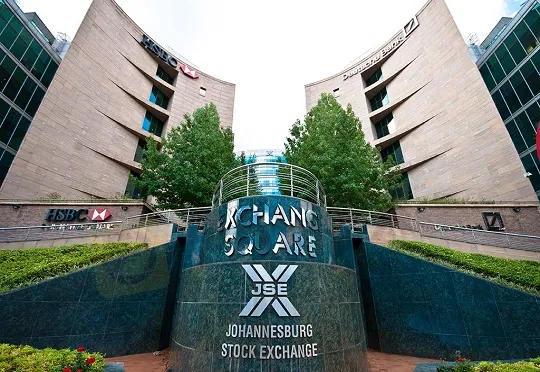简体中文
繁體中文
English
Pусский
日本語
ภาษาไทย
Tiếng Việt
Bahasa Indonesia
Español
हिन्दी
Filippiiniläinen
Français
Deutsch
Português
Türkçe
한국어
العربية
The Johannesburg Stock Exchange (JSE) Amends Debt Listing Requirements
Abstract:The Johannesburg Stock Exchange (JSE) has announced that it has changed its debt listing standards, resulting in the creation of a new Transition Segment and the enlargement of the current Sustainability Segment. The Financial Sector Conduct Authority (FSCA) has accepted these changes, which will take effect on April 11, 2022.
The Johannesburg Stock Exchange (JSE) has announced that it has changed its debt listing standards, resulting in the creation of a new Transition Segment and the enlargement of the current Sustainability Segment. The Financial Sector Conduct Authority (FSCA) has accepted these changes, which will take effect on April 11, 2022.

The Transition Segment will serve as a marketplace for Transition Debt Securities, allowing issuers to raise financing for the climate or transition-related purposes. Transition finance is expected to play a significant role in enabling a just transition and is especially important for a carbon-intensive economy like South Africa in helping us meet our national commitment to the Paris Agreement and the associated goal of being net-zero by 2050 as part of our nationally determined contributions (NDCs).
Sustainability Use of Proceeds Debt Securities or Sustainability-Linked Debt Securities will be used to fund the Transition Debt Securities. Sustainability-linked securities do not require a ring-fencing of proceeds, allowing the issuer to use the proceeds of a capital raise in whatever way it sees fit, as long as it satisfies the agreed-upon goals and targets connected to its sustainability objectives.
These securities are forward-looking and are also known as performance-linked securities. The issuer will be required to report on its performance against its goals on an annual basis, and the cost of capital will be tied to the achievement of these goals via a “step-up” or “step-down” aspect.
Sustainability Use of Proceeds Debt Securities, which require issuers to declare which sustainability assets they will invest the proceeds in, are now listed on the JSEs Sustainability Segment. The JSE enlarged the Green Bond Segment into a full-fledged Sustainability Segment in June 2020, allowing corporations to list social, green, and sustainability bonds on one platform for the first time, as well as allow investors to trade in these securities.
JSEs Sustainability Segment has raised its market capitalization to R21.421 billion since its expansion in 2020, and the introduction of Sustainability-Linked Debt Securities to the Segment will increase market capitalization even more.
Disclaimer:
The views in this article only represent the author's personal views, and do not constitute investment advice on this platform. This platform does not guarantee the accuracy, completeness and timeliness of the information in the article, and will not be liable for any loss caused by the use of or reliance on the information in the article.
Read more

Oil Prices Continue to Rise Due to Sanctions
Last Friday, oil prices closed slightly lower but increased for the fourth consecutive week, mainly due to the impact of the latest U.S. sanctions on Russian energy trade, which heightened concerns about oil supply disruptions.

Will Gold Prices Continue to Rise Due to Trump’s Tariffs?
Recently, gold prices have been driven by rising U.S. government debt, persistent inflation, and growing economic uncertainty, showing strong performance.

SEC Fines Vanguard $106 Million Over Misleading TRF Tax Disclosures
The Securities and Exchange Commission (SEC) has imposed a hefty $106.41 million fine on Vanguard Group, Inc. following an investigation into misleading statements regarding the tax consequences of its Target Retirement Funds (TRFs).

Why the Federal Reserve Is So Important
The Federal Reserve, since its establishment in 1913, has transformed from a simple monetary stability institution into a core pillar of the U.S. economy. Its policies not only have a profound impact on the domestic economy but also deeply influence global financial markets.
WikiFX Broker
Latest News
Will Gold Prices Continue to Rise Due to Trump’s Tariffs?
Why the Federal Reserve Is So Important
Boerse Stuttgart Digital Secures EU-Wide MiCAR Crypto License
SEC Fines Vanguard $106 Million Over Misleading TRF Tax Disclosures
Swiss Population Strongly Opposes Abolition of Cash, Philoro Study Reveals
Oil Prices Continue to Rise Due to Sanctions
Currency Calculator






